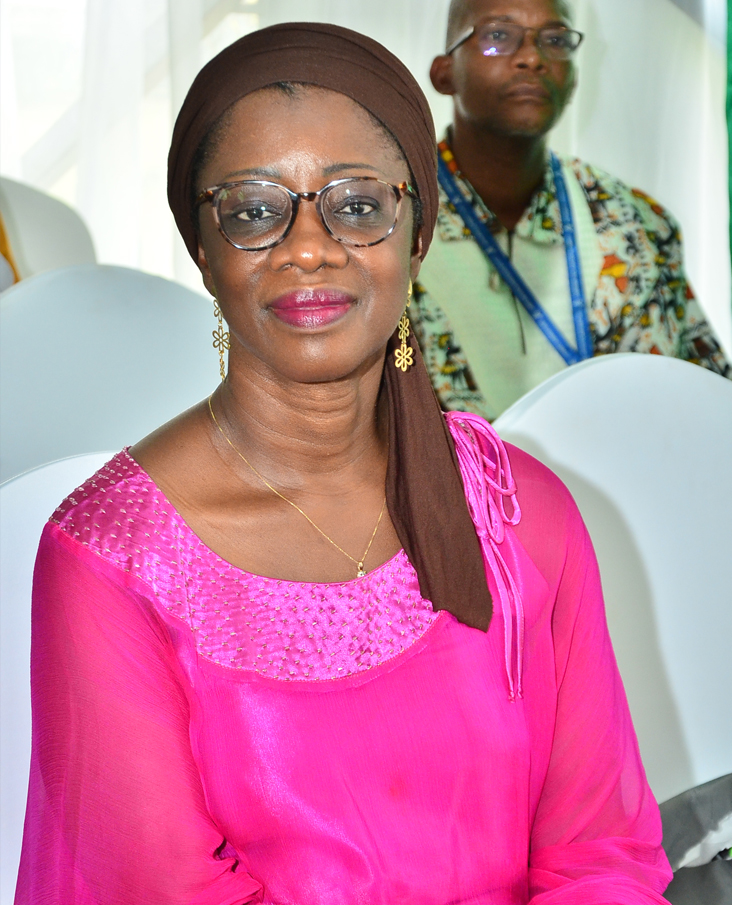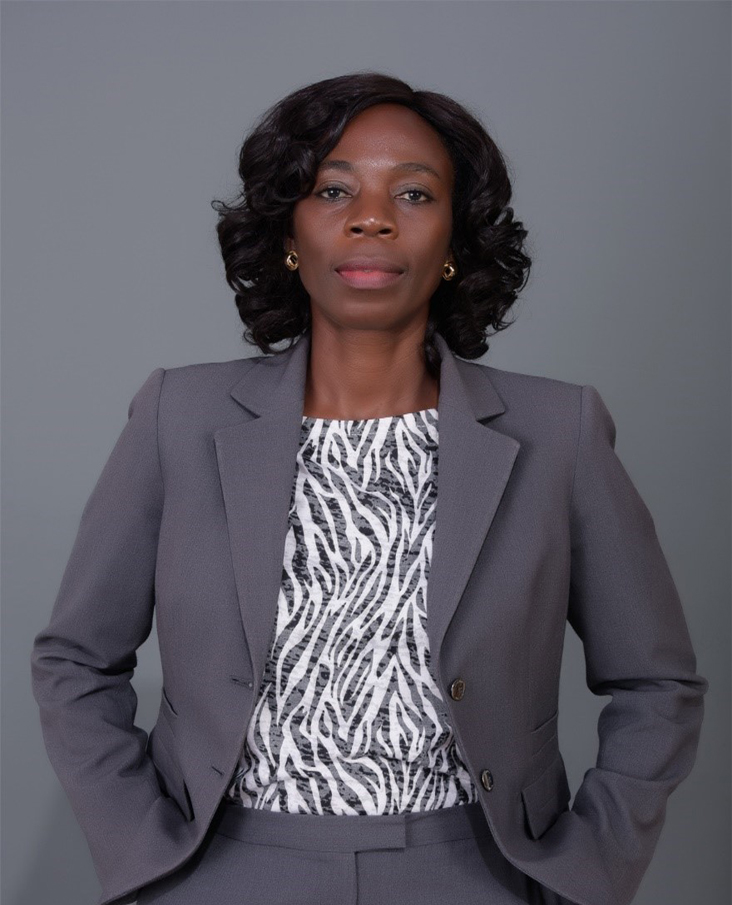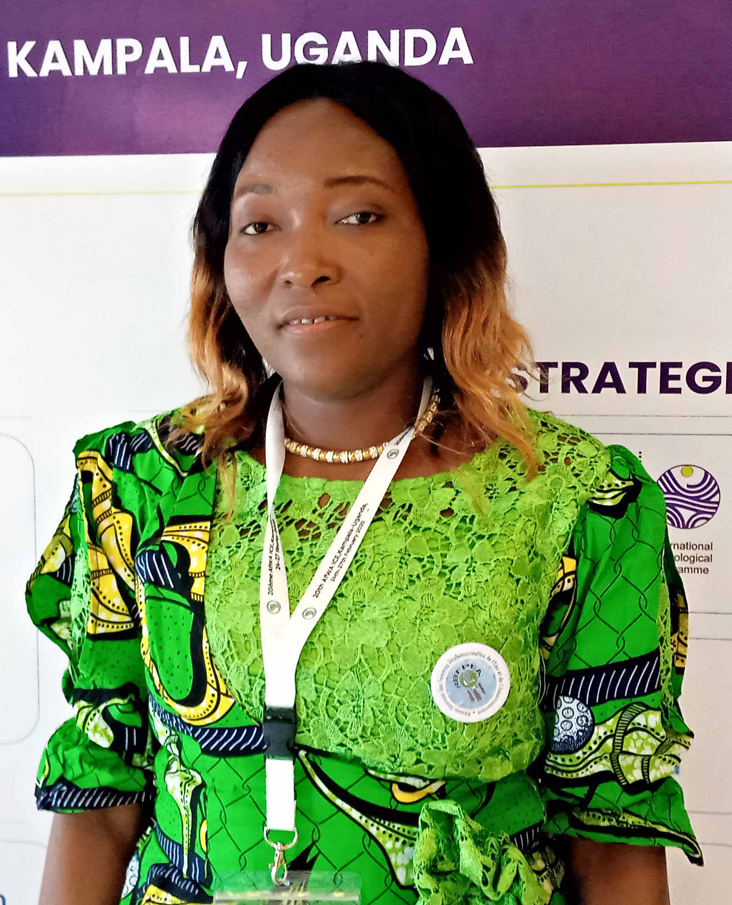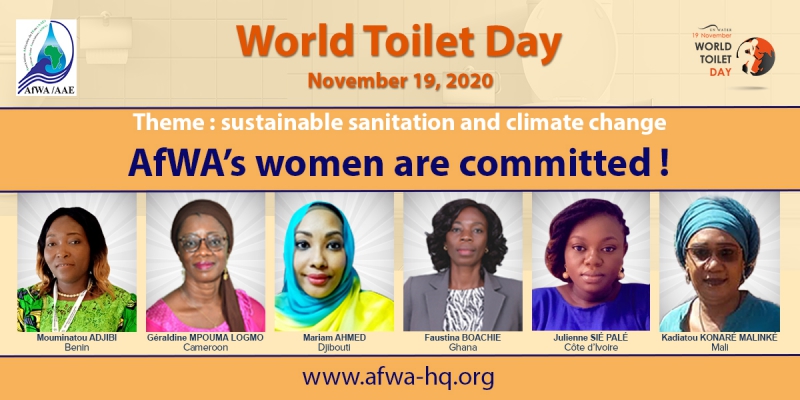
"Women must stand up for the cause of sanitation.
Their lives and those of their children are at stake.
Investing in sustainable sanitation brings development,
offers many opportunities and contributes to saving the planet. »
Geraldine Mpouma Logmo, President of the Association
of Professional Women in Water and Environment of Cameroon (AFPEEC)

People blush when women start to talk about shit and poop in public. I’ve been asked a few times; why do you have to talk about toilets in get-togethers or in the public. We talk about it because of the 4.2 billion people living without access to safely managed sanitation. Most African households living in low income communities, slums and rural areas still do not have toilets in their homes and are required to share toilets with other households. They depend on public toilets where you can distinctly catch the smell of faeces, or defecate openly.
The right to clean and safe sanitation is, at the heart, the right of every individual to better health and human dignity. It is also fundamental to a healthier, safer society as it allow people to dispose of their waste appropriately. While substantial progress has been made in developing innovative toilet systems in African cities and towns, a lot more still needs to be done as 4 in 10 people still do not have access to a toilet... Read more
Faustina BOACHIE, President of WIWASH-Ghana (women in water, sanitation and Hygiene, Ghana)
 On the occasion of World Toilet Day, whose theme this year is "sustainable sanitation and climate change", the population should be sensitized to connect to a sustainable and decent sanitation system and equip themselves with adequate hand washing devices; this will consequently annihilate illnesses linked to lack of hygiene and thus promote, in the long term, the life expectancy of these households. This awareness of the importance of handwashing for household safety will consequently annihilate illnesses related to lack of hygiene and will thus, in the long term, increase the life expectancy of these households. In this regard, since youth is the best vector for raising awareness, we make schools a priority in our awareness activities, especially in this time of pandemic COVID19 crisis, it is important to recall the essential gestures.
On the occasion of World Toilet Day, whose theme this year is "sustainable sanitation and climate change", the population should be sensitized to connect to a sustainable and decent sanitation system and equip themselves with adequate hand washing devices; this will consequently annihilate illnesses linked to lack of hygiene and thus promote, in the long term, the life expectancy of these households. This awareness of the importance of handwashing for household safety will consequently annihilate illnesses related to lack of hygiene and will thus, in the long term, increase the life expectancy of these households. In this regard, since youth is the best vector for raising awareness, we make schools a priority in our awareness activities, especially in this time of pandemic COVID19 crisis, it is important to recall the essential gestures.
.. Read more
Mariam AHMED, Djiboutian Network of Professional Women in Water and Sanitation
 Nothing is more astounding than to see that in Africa, people without access to toilets proudly walk around communities with a smartphone in their hand...
Nothing is more astounding than to see that in Africa, people without access to toilets proudly walk around communities with a smartphone in their hand...
Why is the African continent struggling to meet the sanitation challenge? Quite simply because most African countries prefer to invest billions in the construction of roads and telecommunication networks rather than in the construction of sanitation networks and/or toilets that meet standards! Don't African countries understand that floods, droughts and the scarcity of water resources will continue to have catastrophic but above all alarming social, health and environmental repercussions for the planet?
As committed leaders in the water and sanitation sector, we as women are reiterating our willingness to support AfWA in its quest for African solutions for sustainable access to sanitation for the most vulnerable, namely women and children... Read more
Konaré Kadiatou Malinké, President of the Malian Network of Women Water and Sanitation Professionals
 With more than 80% of the population (Ivorian) using non sewer sanitation system, it is up to each individual or collectively, through households, emptying companies or through the action of organizations and institutions to promote :
With more than 80% of the population (Ivorian) using non sewer sanitation system, it is up to each individual or collectively, through households, emptying companies or through the action of organizations and institutions to promote :
- the construction and maintenance of suitable sanitation facilities, particularly toilets and septic tanks; - a secure collection and transport system; - the provision and proper functioning of dedicated treatment units.
Together, let's make our toilets a means of safeguarding life. Read more
Sié Palé Julienne, president of the National Association Toilets for All, Côte d'Ivoire
 " Facing the threat of climate change, securing water, hygiene and sanitation infrastructure is more than ever the responsibility of all,
" Facing the threat of climate change, securing water, hygiene and sanitation infrastructure is more than ever the responsibility of all,
for the health and well-being of our populations and that of future generations. "
Mouminatou Adjibi, president of the Beninese network of women water and sanitation professionals

 English
English  Français
Français 
